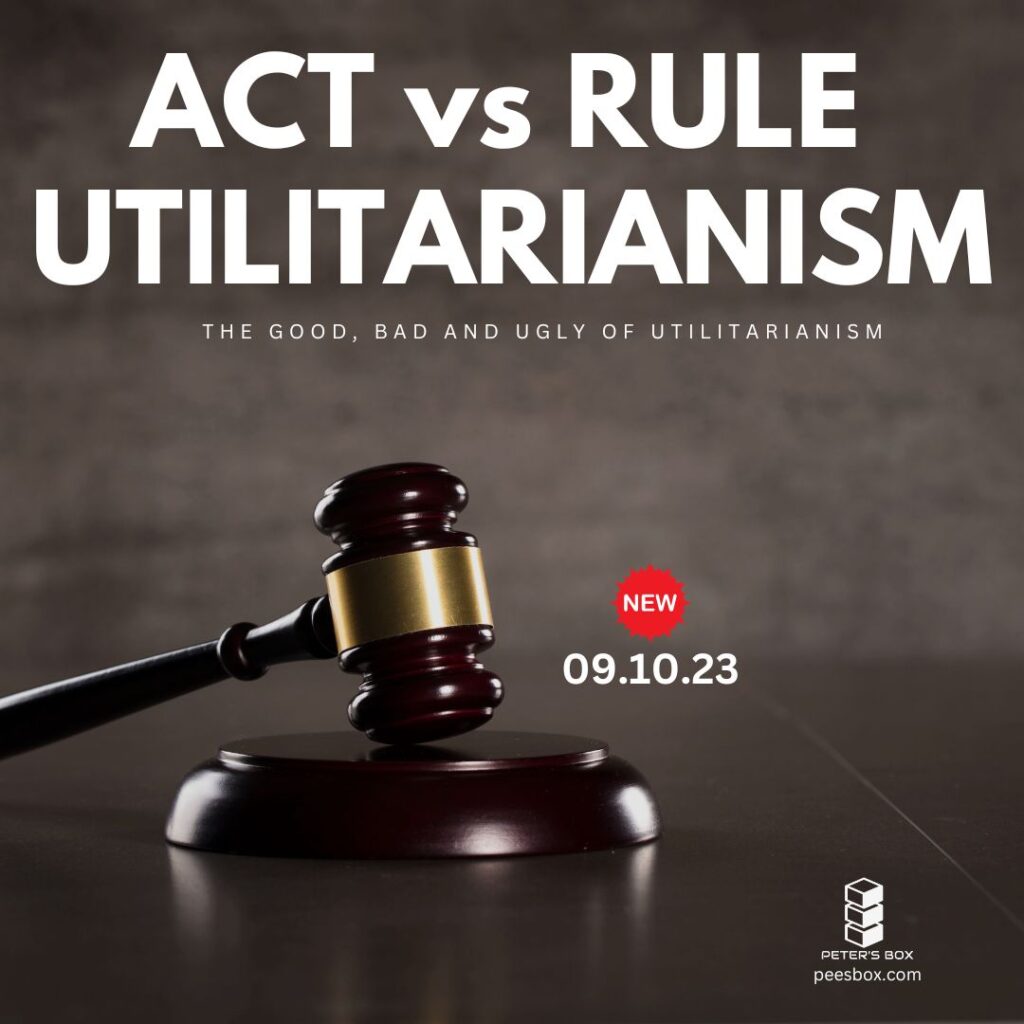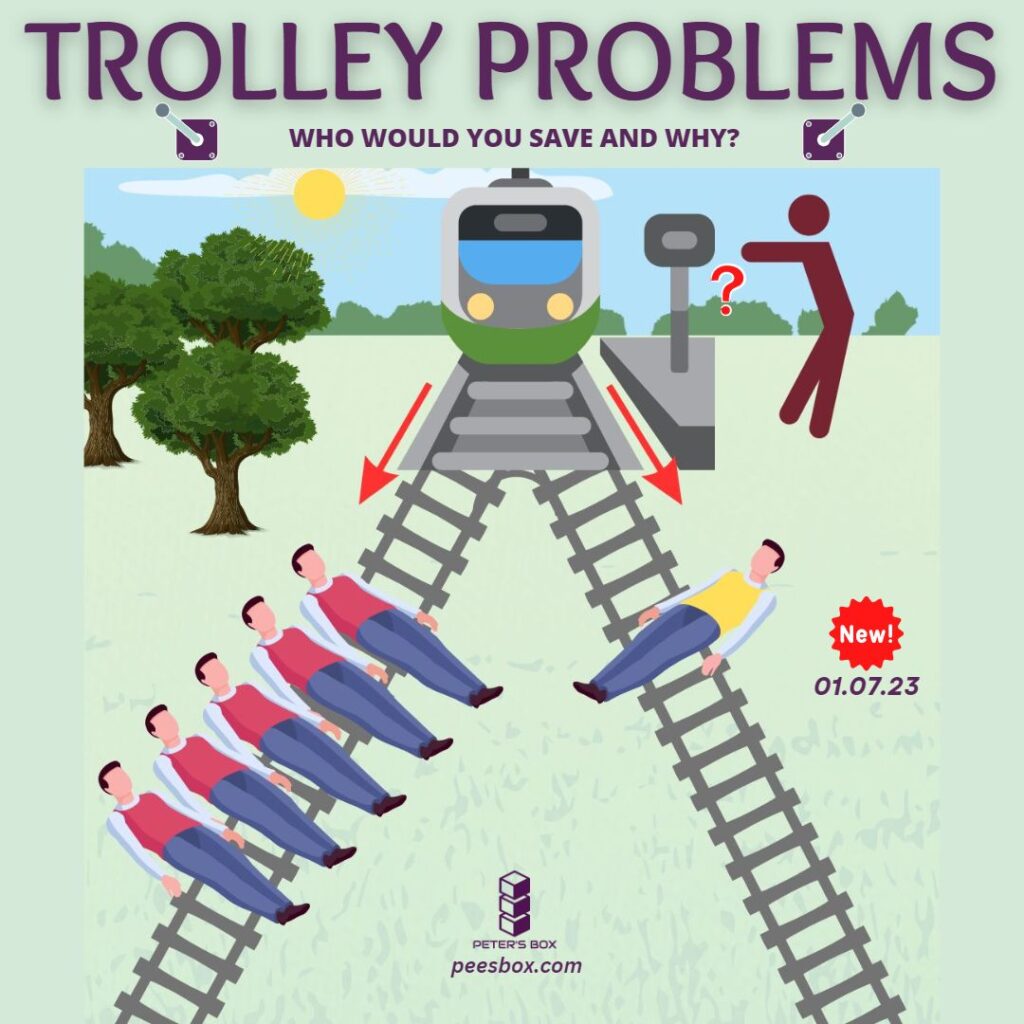Act Utilitarianism vs Rule Utilitarianism
Though utilitarianism offers a simple moral principle to work with, it might not be easily used in very complex moral situations. Hence, there have been a number of versions of utilitarianism developed to factor in such complexities. There are two kinds of utilitarianism: act utilitarianism vs rule utilitarianism. There is a further contrast between strong rule and weak rule in rule utilitarianism.
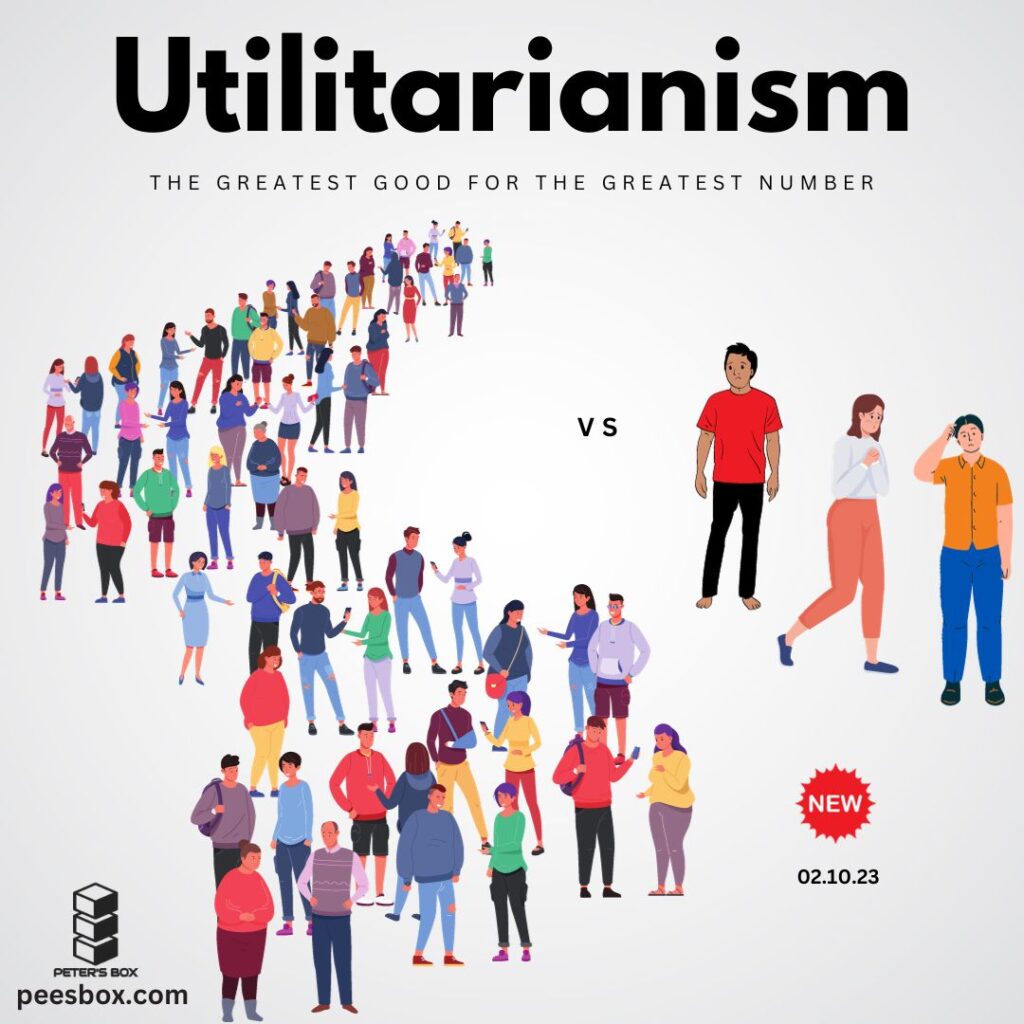
Advantages of Utilitarianism
Simple and easy to understand (intuitive): Utilitarianism is a straightforward mathematical problem. Utilitarianism provides a quick and straightforward technique to make moral judgements. This is why it appears to be so enticing. The majority of individuals will agree that pleasure or happiness are significant aspects of their human experience. It is simple. Who wants to be in agony all the time?
Flexible theory for all situations: To assess if an action is moral, a utilitarian needs only two parameters. The net happiness created by the action and the number of individuals involved. It makes no difference how complicated the situation is; these two parameters will be used.
Society flourishes (greatest good): Because it emphasises the greatest good for the largest number of people, utilitarianism will always benefit society as a whole. There seem to be utilitarian laws in every civilization. The ‘Don’t drink and drive’ rule is intended to benefit the largest number of individuals. While drinking might be enjoyable, drinking while driving can be harmful. If a drunk driver hits another pedestrian, they risk losing their lives. As a result, drinking while driving is not utilitarian. The COVID protocols implemented during the COVID-19 pandemic were likewise purely utilitarian. Wearing nose masks, social distancing, and quarantine were all implemented to safeguard society’s health.
Secular moral theory: Irreligious individuals can use utilitarianism as a moral compass. People who are not religious and are unsure how to live a moral life devoid of religion might turn to utilitarianism for guidance.
Egalitarian theory – fair, non-discriminatory: Everybody is worth the same. Every person has equal value, according to utilitarianism. Any biases are removed as a result. Issues like colour, gender, class, religion, and so on are not considered in the decision-making process. It makes no difference if you are the president’s son or daughter. A utilitarian is unconcerned with your status in the decision-making process.
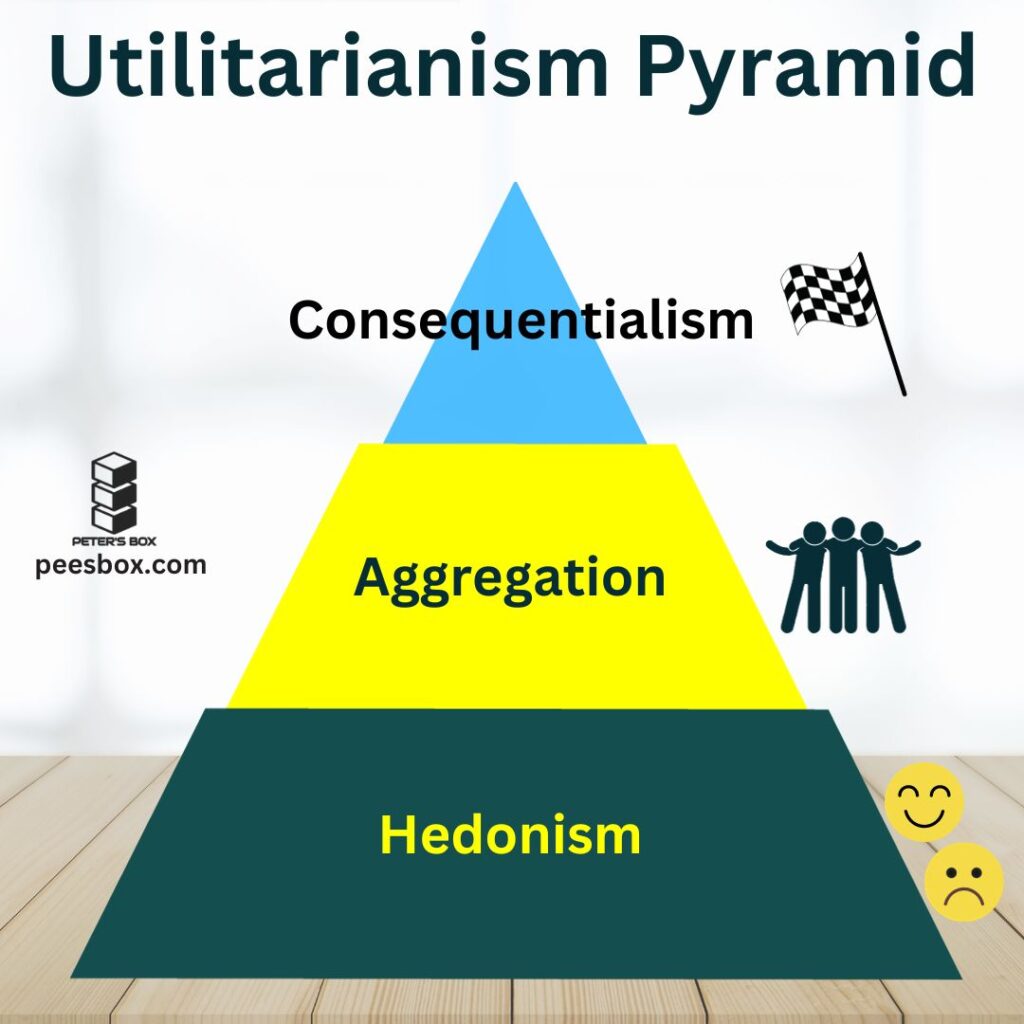
Disadvantages of Utilitarianism
Ignores justice and rights: By far the most common objection to utilitarianism is its denial of justice and rights! Individual rights are insignificant. Priority is given to the outcome of an action. A utilitarian will tolerate the most wicked deeds if they result in the greatest good. Bullying is not morally wrong, according to a reductionist interpretation of utilitarianism. For instance, the pleasure bullies have while bullying a youngster justifies their behaviour. This would also imply that the victim of bullying would have to consent to being bullied for the abuser’s own amusement. In utilitarianism, justice is unimportant. Slavery and the black market for human organs are both acceptable under utilitarianism.
Impractical: Utilitarianism may seem like a straightforward theory, but this may not be the case. How can we measure, let alone total up, pleasure when the number of people affected by a single action is in the millions? When working with a small group of people, utilitarianism may be ideal, but not with a huge one!
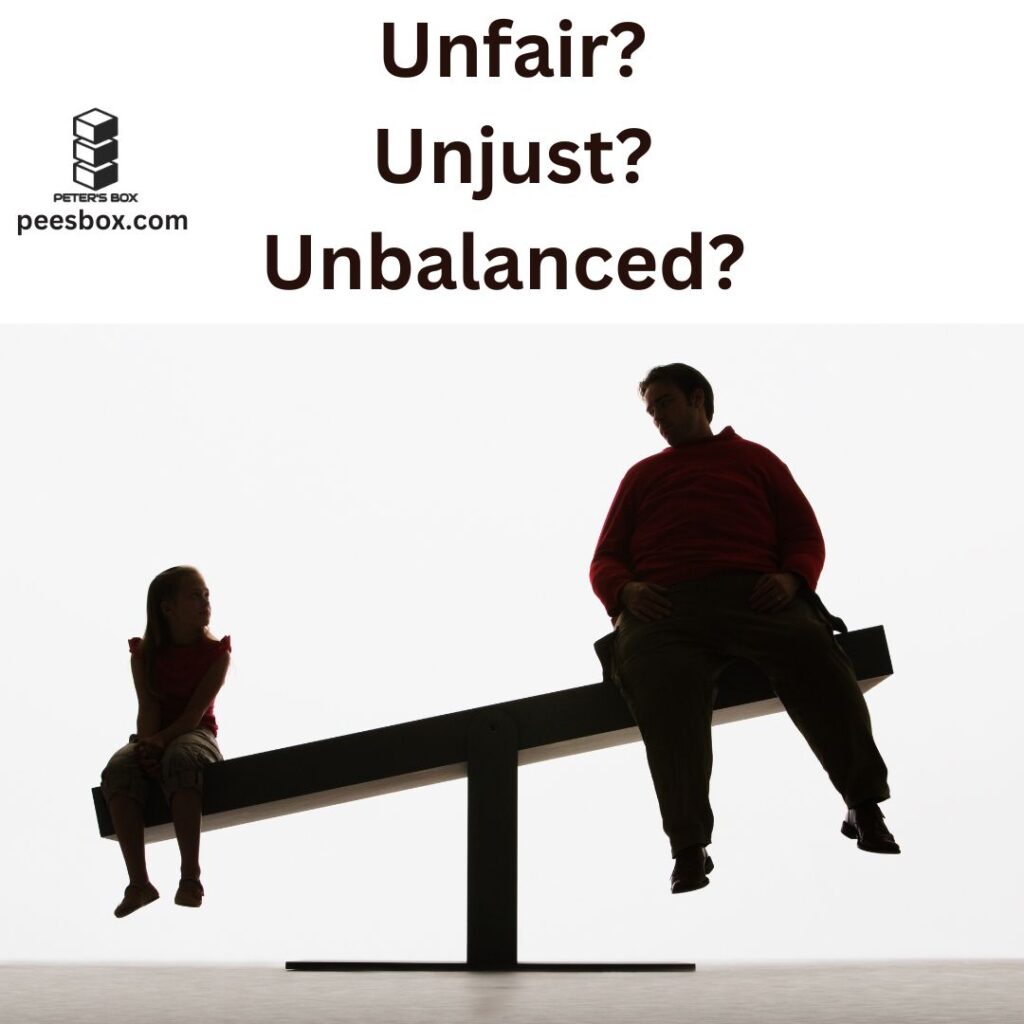
Self-sacrifice: Utilitarianism is very demanding. It necessitates that the minority constantly make sacrifices for the benefit of the majority. If you ever find yourself in the minority, you just have to take one for the team. After all, it is for the greater good.
Permitting evil acts: An action is only considered good or moral if it benefits the largest number of people. This suggests that any evil action can be justified as long as the consequences create good (pleasure) for the majority of people.
The end justifies the means: In utilitarianism, each individual has instrumental value rather than inherent value. Human dignity is ignored.
The minority always loses: The majority has the upper hand. By the definition of utilitarianism, the minority is disadvantaged.
During the World Cup
In his famous World Cup thought experiment, the American philosopher Thomas Michael Scanlon criticises utilitarianism. It goes like this.
Suppose that Jones has suffered an accident in the transmitter room of a television station. Electrical equipment has fallen on his arm, and we cannot rescue him without turning off the transmitter for 15 minutes. A World Cup match is in progress, watched by many people, and it will not be over for an hour. Jones’s injury will not get any worse if we wait, but his hand has been mashed and he is receiving extremely painful electrical shocks. Should we rescue him now or wait until the match is over? Does the right thing to do depend on how many people are watching – whether it is one million or five million or a hundred million?

Negative Responsiblity
Sir Bernard Arthur Owen Williams was a moral philosopher from England. He contended that utilitarianism is a philosophy of negative responsibility. He illustrated this using a thought experiment. Here’s what he came up with.
Jim is on a trip through South America. He enters a village where twenty men are being guarded by armed men. The officer in charge, Pedro, sees Jim and tells him what is going on. According to Pedro, the detainees are a randomly chosen group of inhabitants who are set to be executed to put an end to recent acts of insurgence against the government. Pedro wishes to honour Jim by having him shoot one of the inhabitants. Jim has the option to decline. If Jim does, though, Pedro will liberate the remaining nineteen people. If Jim does not comply, Pedro will shoot them all. If you were Pedro what would you do?

Organ transplant dilemma
There are numerous thought experiments or moral dilemmas that call utilitarianism into question. The organ transplant problem is one of them.
In a hospital, there are five patients. They are all in desperate need of an organ transplant to save their lives. The doctor discovers that the on-duty nurse is a perfect match for the organ transplant. The nurse’s body contains the organs that these five patients need. Is it moral for the doctor to kill the nurse and harvest her organs to save the five patients?

What would a Utilitarian do?
It is clear what to do in the situations mentioned above, as per the utilitarian definition. Utilitarianism is the moral philosophy that says we must do whatever produces the most pleasure or happiness for the largest number of individuals in every scenario.
In the first scenario, Jones should be left to his fate. If the transmission were to be turned off to rescue Jones, millions of people’s pleasure would be taken away.
In the second scenario, Jim must shoot one of the inhabitants in order for the other nineteen to be released. Even if one inhabitant died as a result of this, it would be the greatest good for the greatest number.
A utilitarian might not find anything wrong with the doctor killing the nurse in the transplant dilemma in order to use her organs to save the lives of five patients.
Not all Utilitarians are equal
However, some utilitarians will behave differently in certain scenarios. The standard definition of utilitarianism put forward by Jeremy Bentham is not adopted by all utilitarians. How so? Do you remember John Stuart Mill? In the 18th century, he was a proponent of utilitarianism. He was also a student of Jeremy Bentham. Mill made some minor changes to the definition of utilitarianism after noticing some emerging problems.
Rather than focusing just on the action that results in the greatest good for the greatest number, Mill advocated that a fundamental rule be followed to guide which actions are likely to result in the greatest good for the greatest number. As a result, Mill’s formulation is known as Rule Utilitarianism, whereas Bentham’s definition is known as Act Utilitarianism. Both definitions consider the greatest good for the largest number of people. However, rule utilitarianism considers a rule, but act utilitarianism considers just an action.
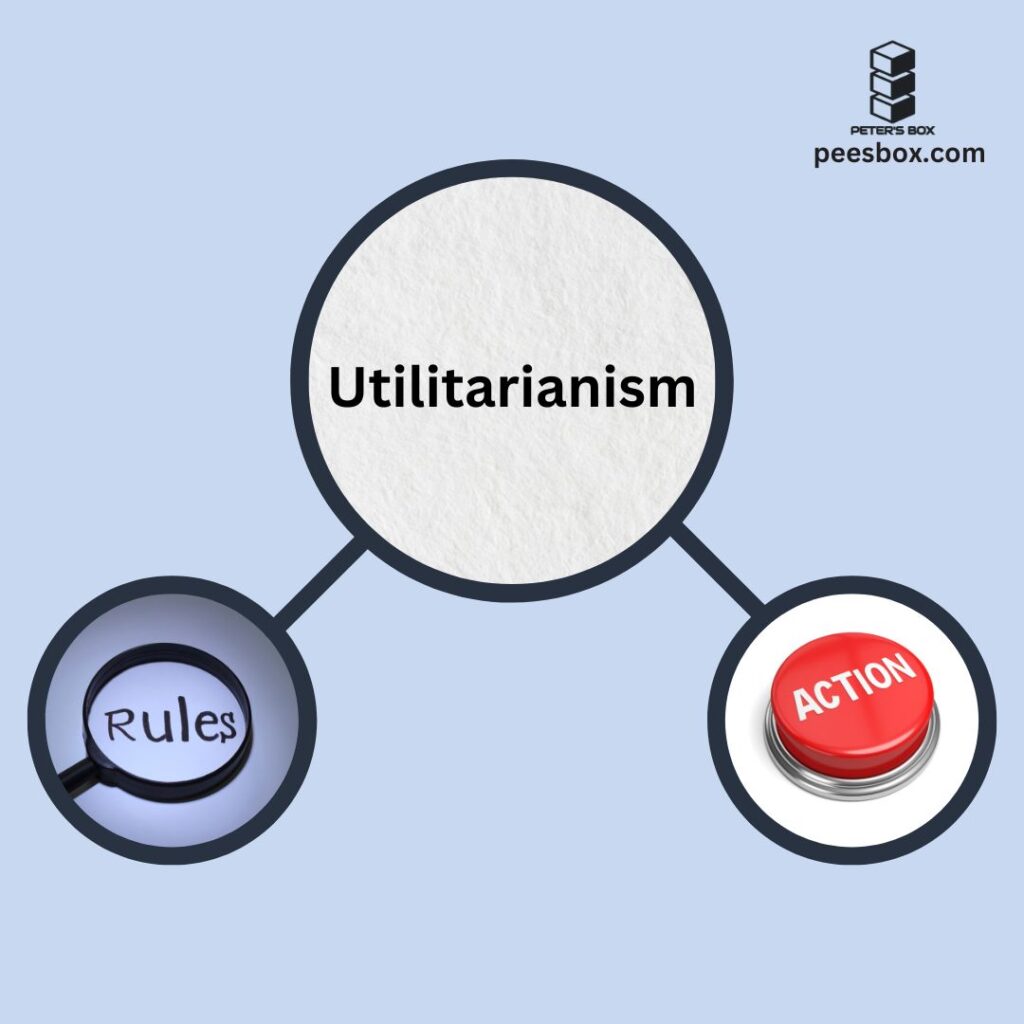
John Stuart Mill
Mill also emphasised that not all pleasures are created equal. Some pleasures have greater inherent value than others. Mill said, ‘It is better to be a human being dissatisfied than a pig satisfied. It is better to be Socrates satisfied than a fool satisfied. And if the fool or the pig is of a different opinion, it is only because they only know their own side of the question.’
He classified pleasure into two types: lower and higher pleasures. A pleasure is a higher pleasure if it would be chosen over another pleasure, even if it is accompanied by discomfort, and if it would not be traded with a higher quantity of the other pleasure.
A typical example of a rule used in rule utilitarianism is that lying is immoral because it has negative consequences. As a result, if an action requires or involves lying, it should be avoided.
Please hide me!
You hear a loud banging on your door one evening. ‘Please open me,’ a voice repeatedly cries out. You answer the door to see your friend, who is dressed shabbily and appears terrified. He begs you to keep him hidden from an angry mob that is pursuing him.
You hide your friend in your bedroom. A few minutes later, the angry mob appeared at your door, demanding to know where your friend was. They will pull your friend out and lynch him if you tell them the truth. They will leave your house if you lie and say you don’t know where your friend is, and your friend will be spared.

Act vs Rule Utilitarianism
Now that we are aware of the two forms of utilitarianism (act and rule), let’s see how they may be used in this circumstance.
An act utilitarian solely considers the course of action that will result in the most happiness or benefit. The number of angry individuals outnumbers your single friend. Even if your friend’s life is in danger (which is painful for him), the furious crowd would enjoy seeing him killed. As a result, an act utilitarian will tell the truth and reveal the location of his friend.
Rule utilitarianism employs a rule that is most likely to result in the greatest good for the greatest number of people. Thus, if an action violates this principle, it is usually best to refrain from taking that action. When asked where your friend is, you must be honest if we follow the rule that lying is wrong and should be avoided.
Weak vs Strong Rule
However, a rule utilitarian will most likely lie to keep his friend safe. What? Lie? But, since the rule in this case is not to lie, why would a rule utilitarian break this rule?
There are two kinds of rules that can be applied: strong rules and weak rules (also known as soft rules). Strong rules are those that are not intended to be broken. You are permitted to breach the rule, but only in specific circumstances where doing so is necessary to further the greatest benefit for the largest number of people. This rule turns into a weak or soft rule.
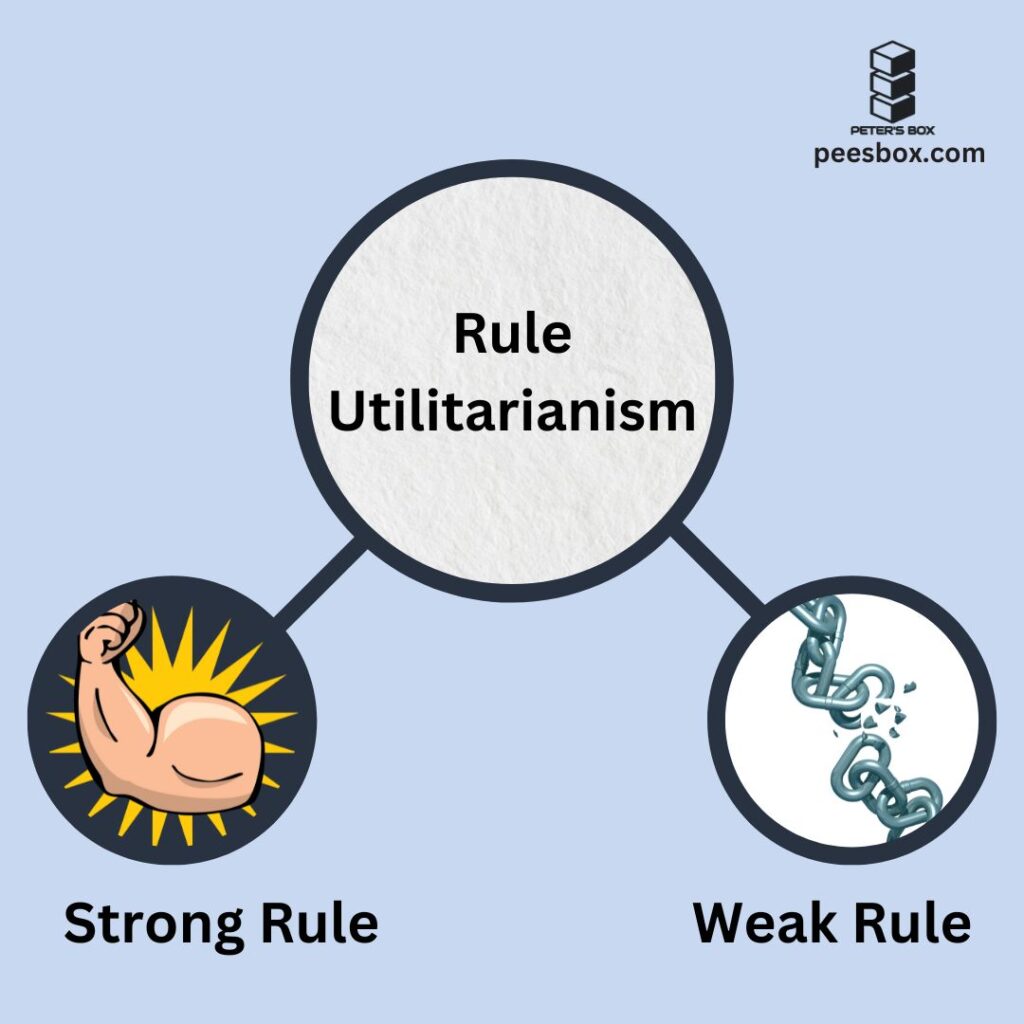
Two-level Utilitarianism
Two-level utilitarianism is a moral theory put forward by Richard Mervyn Hare that advocates that people ought to adhere to one set of moral rules in most situations, but in exceptional cases, when appropriate, they should engage in “critical” moral reasoning. Two-level utilitarianism is really a combination of the competing philosophies of act utilitarianism and rule utilitarianism.
Speed limit enforcement in road safety policies is an example of two-level utilitarianism. Since they are intended to safeguard the lives of pedestrians and other drivers, speed limits are mostly utilitarian in nature. In my country, Ghana, the speed limit in urban areas ranges from 30 km/h to 50 km/h. However, in the event of a medical emergency, an ambulance can go above this speed limit. This is an example of two-level utilitarianism.
What’s next in Peter’s Box? ¡Hasta luego amigos!


